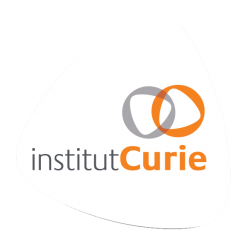- Back
- Location
- Anywhere
- Date Posted
- 5 Dec 2024

- Type
- PhD Program
- Anywhere
- 5 Dec 2024
Institut Curie’s EuReCa International PhD Program in Life Sciences – 8 PhD positions in Sept. 2020

NOTE: this position listing has expired and may no longer be relevant!
Position Description
Institut Curie is recruiting 8 PhD students through its new international program called EuReCa. This program, part funded by the European Commission’s MSCA COFUND scheme, provides PhD students with a 3-year full-time doctoral contract, a high level interdisciplinary, inter-sectorial, and international training with personalized career development plans including coaching, training, secondments and mentoring.
PhD research projects in life sciences cover Institut Curie’s main research domains:
✓ Biology & Chemistry of Radiations, Cell Signaling & Cancer
✓ Development, Cancer, Genetics & Epigenetics
✓ Integrative Tumour Biology, Immunology & Environment
✓ Multiscale Physics-Biology-Chemistry & Cancer
✓ Translational Research
Institut Curie brings together a world-class multidisciplinary cancer research center and a model hospital group in Paris and surroundings. By embracing cross-disciplinary approaches, it drives the discovery of more effective treatments and leads to improved patient care.
Open positions
Project 1 – Mechanism of Caveolin-assisted transport and enrichment of sphingomyelin in the plasma membrane
Thesis supervisor(s): Patricia Bassereau & Christophe Lamaze
Research group: Membranes & Cellular Functions
Project 2 – Unraveling the architecture of human centromeres and its impact in the (epi)genetic mechanisms of centromere speficiation, immune response and in maintaining chromosome integrity
Thesis supervisor(s): Daniele Fachinetti
Research group: Molecular Mechanisms of Chromosome Dynamics
Project 3 – A synthetic platform for siRNA delivery
Thesis supervisor(s): Ludger Johannes
Research group: Endocytic Trafficking & Intracellular Delivery
Project 4 – Molecular architecture of endoplasmic reticulum-plasma membrane contact site by cryo- electron tomography
Thesis supervisor(s): Daniel Lévy & Manuela Dezi
Research group: Molecular Microscopy of Membranes
Project 5 – From patients to ex vivo modeling of tumor ecosystems: role of Cancer-Associated Fibroblasts in breast cancer response to chemotherapy
Thesis supervisor(s): Maria-Carla Parrini & Fatima Mechta-Grigoriou
Research group: Stress & Cancer
Project 6 – ‘What big eyes you have’: a systems biology approach to the developmental mechanisms of eye size variation
Thesis supervisor(s): Ariane Ramaekers
Research group: Epigenetic Plasticity & Polarity of the Embryo
Project 7 – Targeting cancer-associated fibroblasts to increase T cell infiltration and tumor cell killing in non-small cell lung cancer
Thesis supervisor(s): Hélène Salmon
Research group: Stroma & Immunity
Project 8 – The RNA-binding activity of glycolytic enzymes in melanoma
Thesis supervisor(s): Stéphan Vagner
Research group: RNA Biology, Signaling & Cancer
Eligibility criteria
1. Early-stage researchers (ESR) shall at the call deadline be in the first four years (full-time equivalent research experience) of their research careers and have not been awarded a doctoral degree.
Full-time equivalent research experience is measured from the date when a researcher obtained the degree which would formally entitle him or her to embark on a doctorate.
2. Applicants may not have resided or carried out their main activity (work, studies, etc) in France for more than 12 months in the 3 years prior to January 21st, 2020.
Time spent as part of a procedure for obtaining refugee status under the Geneva Convention, compulsory national service and/ or short stays such as holidays are not taken into account.
3. Applicants must be in possession of (or be about to obtain) a European master degree or equivalent master’s degree which would formally entitle them to embark on a doctorate.


